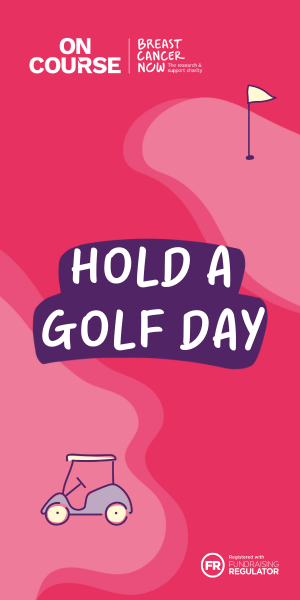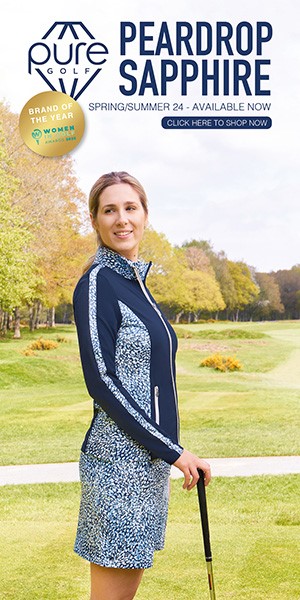EDGA, the international body for disability golf, shares the story of Italian player Alessandra Donati, who was born with the rare disease Charcot-Marie-Tooth (CMT).
"Life is beautiful, and golf is like a beautiful flower in life" - it is fitting that Ale (pronounced Aa-lee) should use such an expressive way to describe her passion for golf.
Some of golf's many attractions are the natural beauty of the setting in which it is played, the course layout, open spaces, fresh air, and the challenge of a game that continually changes. Life has changed for Ale, and over the last ten years, golf has become an essential part of her daily life. After almost 30 years of work in a bank, she is well versed in routine, and today her golf time is every bit as structured as is her work schedule. Every morning she works in the office and then she goes to Golf Club Le Fonti, in the south of Bologna. One day per week she practices with her teacher Giovanni, and on two days she practices alone. At the weekend, she plays competitions at the golf club.

Living with Charcot-Marie-Tooth (CMT)
Ale was born with CMT, a rare progressive neuropathy disease. She explains how golf helps her, “Every year, my weakness increases, but with golf, I don't see that, because the game is good to control my symptoms, as I can move the legs without much effort, without force. My disease is better when I keep moving, which keeps my mobility."
Although she could hide her impairment as a child, it became progressively more difficult as she grew older. "The big difference came when I turned 30 years of age. I wanted to hide my disease. I started to swim, but I was shy. I didn't want other people to see me. Sometimes I would watch the eyes of others who looked at me like a stranger. I stopped doing several things and just worked, although occasionally I would go to the cinema or restaurant."
An introduction to golf
Renata, a friend of Ale, had played golf for many years and was keen for her to give golf a try. The problem for Ale was finding someone to teach her, as not all golf teachers would understand how they could best help her. She resigned herself to passing her time in the clubhouse.
However, on a trip to France she met a golf teacher Daniel Dugué who told her that she would be able to enjoy playing golf. This gave her the motivation to find a teacher in Bologna and she started having lessons with Adriano Ciancarelli on her return to Italy.

Growing with EDGA
Ale explains how she grew, gradually emerging as a golfer, with skills to learn, rules to respect, and challenges to overcome. "Before I started to play golf, I think I had like a cage in my mind. The cage was my disease, but playing golf is a continuous challenge, and every new step freed me from this cage. It opened the cage in my mind. Before [golf], I thought that I couldn't do many things. I couldn't walk on the grass, but no, with golf I walk on the grass, I go in the bunkers, and it's beautiful because I'm stronger. With golf, I feel stronger than years ago."
Finding an inclusive sport
Golf is a community, people interacting on and around an environment which includes the course, and the clubhouse. Effectively the game is an ecosystem, one which can flourish with diversity. Ale sees the inclusive nature of golf and the notion of people playing together as one, with each person growing through their interactions with others. She sees barriers, of course, but ones that can easily be surmounted when there is a will to do so. "You are not alone, because we are a lot of golfers like you and like me. The difficulty is that there is no Paralympic culture in the golf clubs." Every garden has variety, it is the diversity that pleases the eye and, more importantly, creates a sustainable ecosystem for the game.
You can read more about Alessandra and more inspiring stories from the EDGA players at www.edgagolf.com.
Words by Tony Bennett.















